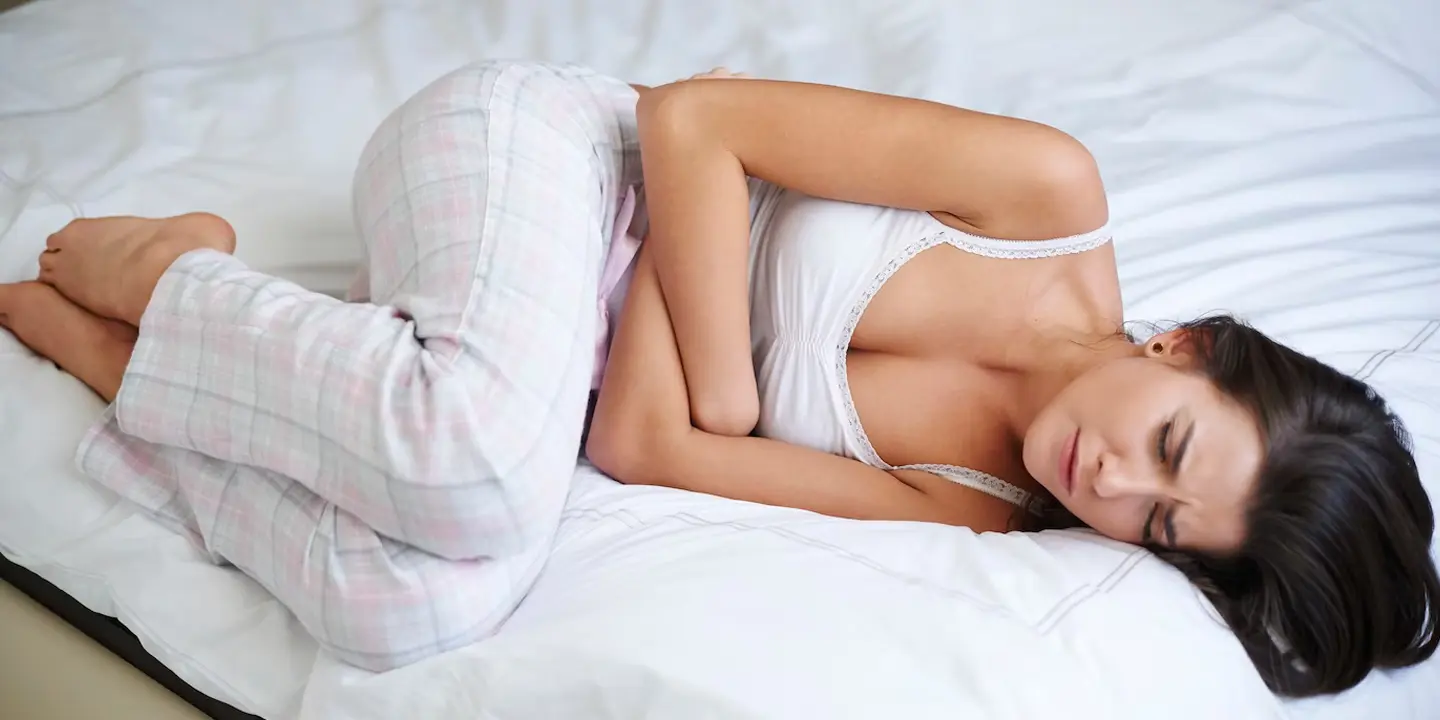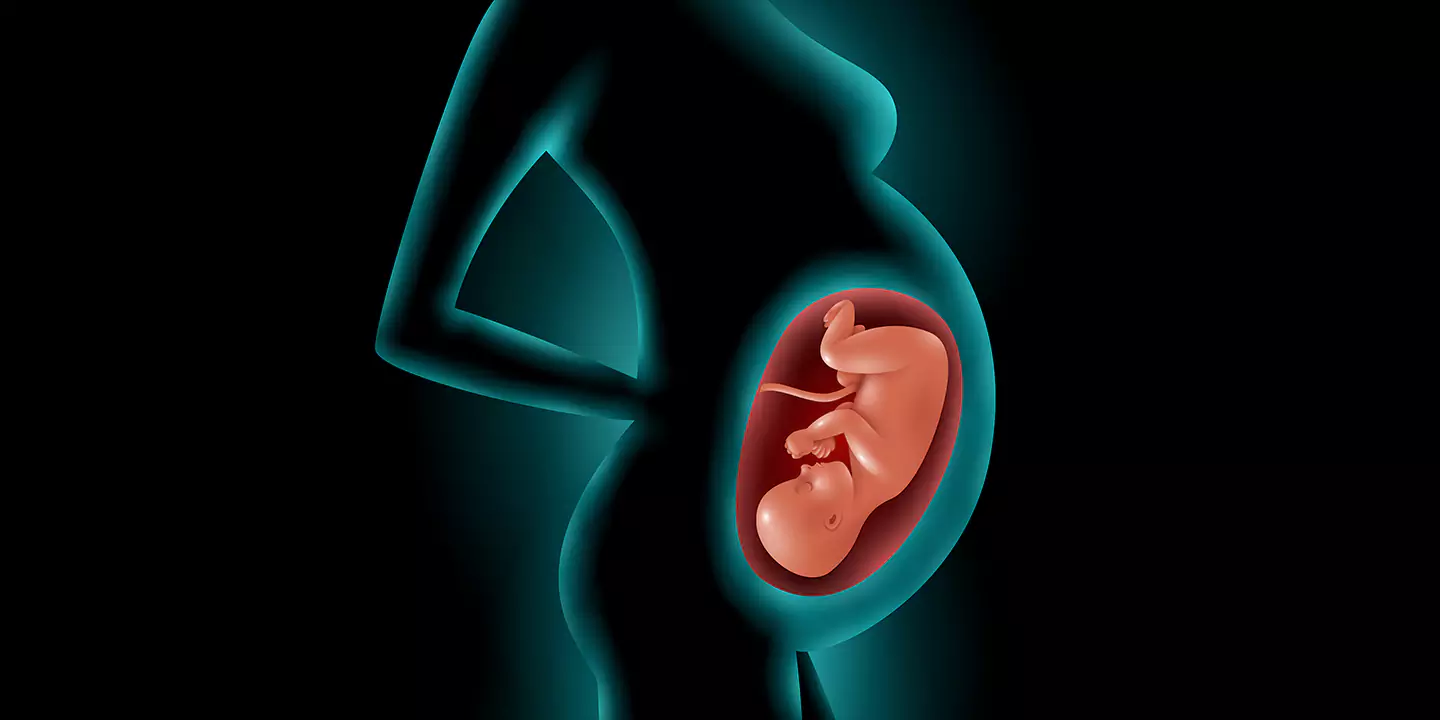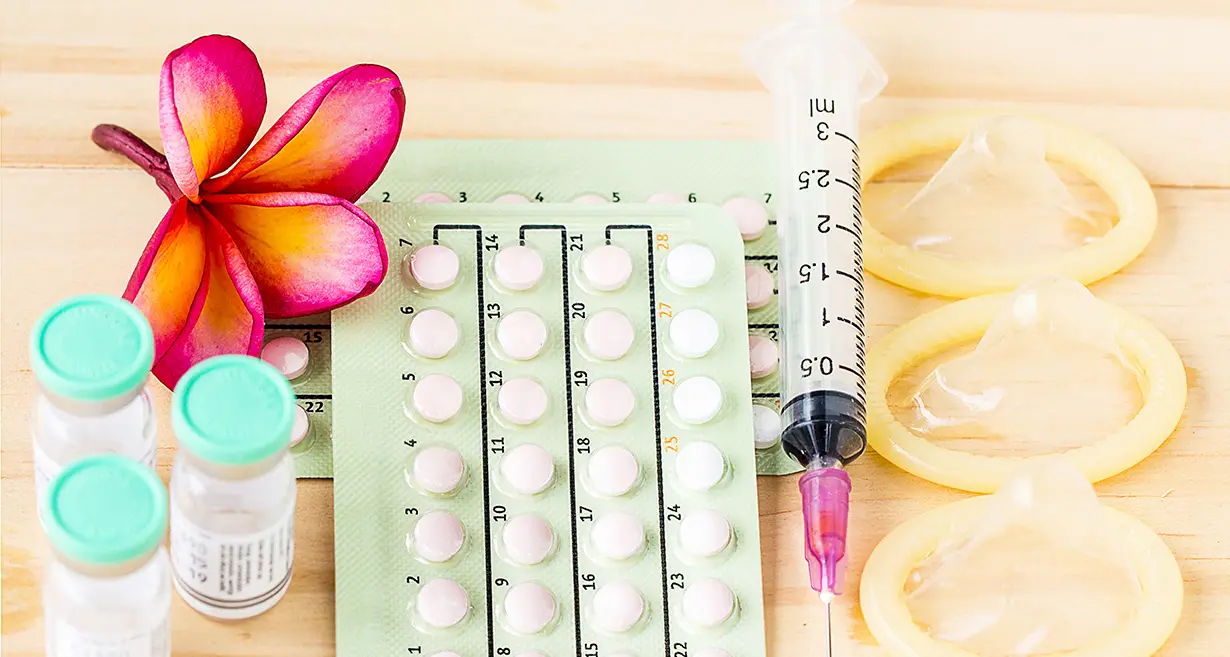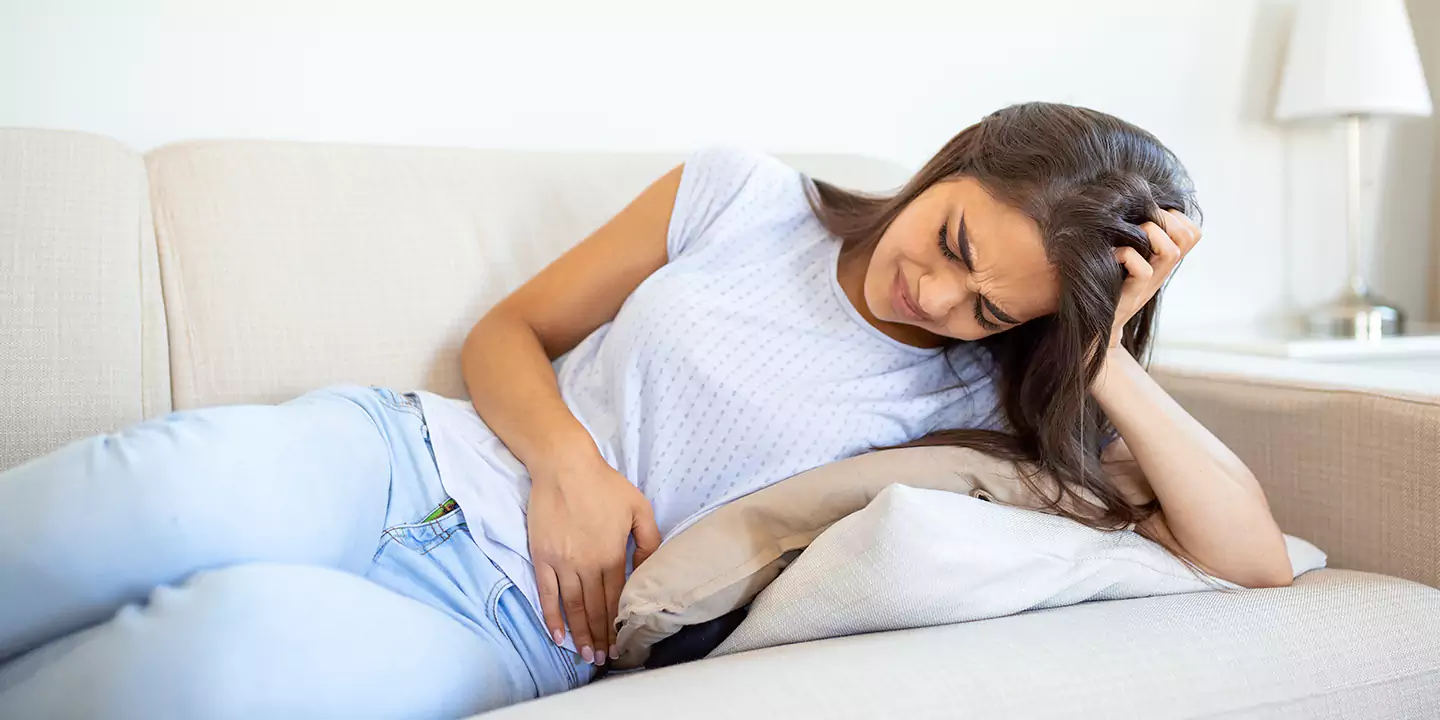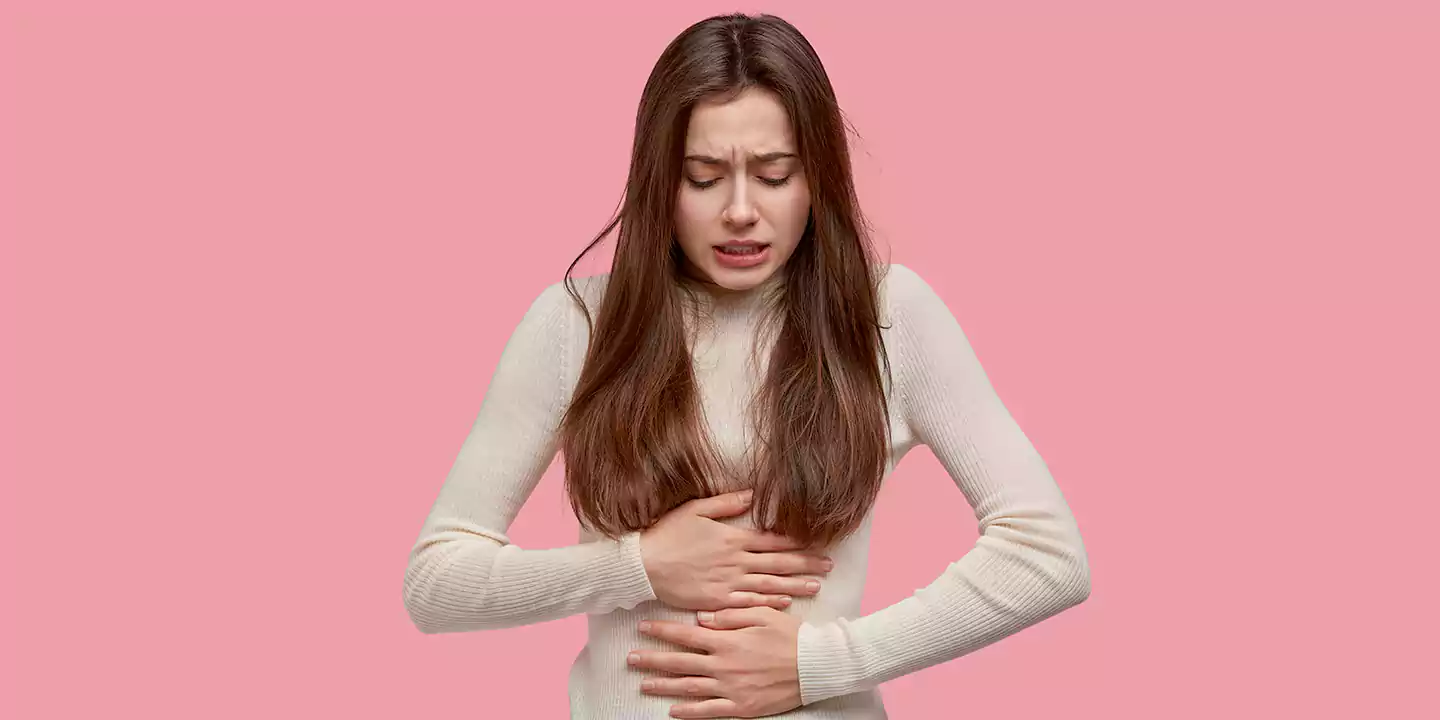
Signals from the Pituitary Gland control the secretion of different hormones in our body, like Progesterone, Estrogen, Testosterone, and more. PCOS or Polycystic Ovarian Syndrome disrupts these signals leading to abnormal hormone levels. Increased testosterone and decreased estrogen-progesterone levels affect fertility, menstrual cycles, increase facial hair growth, cause weight gain and acne/pimples.
Acne or pimples can be caused due to several other reasons like excessive oil secretion, bacterial growth, and stress, but hormone-induced acne is the most difficult to cure. PCOS-related breakouts are typically found near the jawline, chin, and upper part of the neck. However, it may affect other areas of the face, neck, chest, and back too. It leaves deeper and larger lesions and worsens during or before periods.
How does PCOS Cause Acne?
Hyperandrogenism or excessive secretion of androgens is a common symptom of PCOS. These hormones cause skin glands to produce more oil or sebum, which blocks the pores and hair follicles, which later become the breeding ground for bacteria. As a result, inflammations are formed, which are commonly referred to as pimples or acne.
Can PCOS-Induced Acne be Treated?
As the main reason behind the acne build-up is the abnormal hormone levels, the treatment targets regulating the hormone levels. If PCOS is treated, the acne automatically disappears. However, this is not always easy and might take a long time.
Oral Contraceptives
Gynecologists often suggest the use of oral contraceptives that contain a mix of Estrogens like Ethinyl Estradiol and Progesterone like progestin norgestimate, drospirenone, or norethindrone acetate to combat their declining levels and reduce the level of testosterone in the body. Progesterones like Cyproterone Acetate and Drospirenone are also used. It works for most women but is time taking, so they must be patient and take the medicines as prescribed by a trusted gynecologist. Women above the age of 35 or those with a history of blood clotting disorders, blood cancer, hypertension, or smoking must avoid contraceptives.
Over-the-counter (OTC) acne medications
These medicines contain chemicals like benzoyl peroxide, salicylic acid, and Sulphur. They are found in many skin ointments and cosmetics but are usually not enough to treat PCOS-induced acne.
Anti-androgen drugs
These drugs reduce testosterone levels in women with PCOS. Before prescribing, gynecologists run a blood test, and based on the present levels of testosterone, the course of medication is decided.
Retinoids
Teens with PCOS are often treated with Retinoids. It can be taken orally or applied as a cream, only when prescribed by a Gynecologist.
Diet
Food items like red meat, sugar, potatoes, refined flour, fried food, etc. may cause skin inflammations in different parts of the body, which develop into acne. Hence, diet must include naturally anti-inflammatory food items like turmeric, olive oil, walnuts, almonds, kale, broccoli, avocados, dark chocolate, greens, salmon, berries, tomatoes, and lemon. Zinc, Bromelain, Vitamin A & C, and copper are also anti-inflammatory in nature. The patient should consult a dietician for best results.
Healthy Habits
Women with PCOS having acne prone skin must do the following:
- Wash their face with lukewarm water twice a day.
- Drink plenty of water.
- Use oil-free or oil-reducing skin products (cream and lotion) only.
- Avoid scratching or touching the pimple breakouts.
























































































